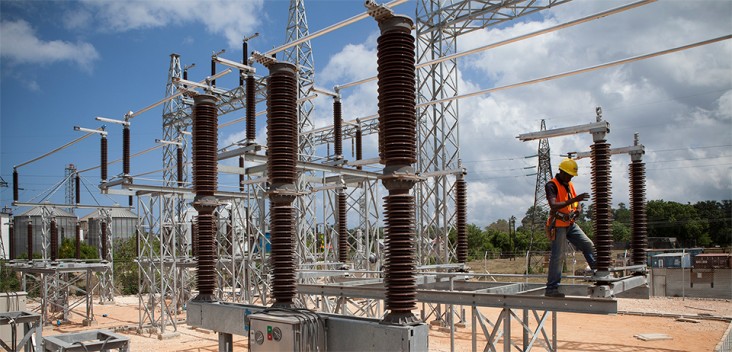- Where We Work
- Africa
- African Union
- Power Africa
- Trade and Investment
- Angola
- Benin
- Botswana
- Burkina Faso
- Burundi
- Cameroon
- Central Africa Regional
- Central African Republic
- Chad
- Côte d'Ivoire
- Democratic Republic of the Congo
- Djibouti
- East Africa Regional
- Eswatini
- Ethiopia
- Ghana
- Guinea
- Kenya
- Lesotho
- Liberia
- Madagascar
- Malawi
- Mali
- Mauritania
- Mozambique
- Namibia
- Niger
- Nigeria
- Republic of the Congo
- Rwanda
- Sahel Regional
- Senegal
- Sierra Leone
- Somalia
- South Africa
- South Sudan
- Southern Africa Regional
- Sudan
- Tanzania
- The Gambia
- Uganda
- West Africa Regional
- Zambia
- Zimbabwe
- Asia
- Europe and Eurasia
- Latin America and the Caribbean
- Middle East
- Mission Directory
Speeches Shim

By Jason Bauer, Director of Finance, Investment and Trade for the Millennium Challenge Corporation (MCC)
Many of the Millennium Challenge Corporation’s partner countries recognize the strong link between accessing power and reducing poverty. Whether it’s connecting schools in communities that were previously off the grid in central Tanzania, generating a reliable power supply for Zanzibar, reaching rural communities in Ghana, or deepening the capacity of Malawi’s power sector to sustainably provide electricity to customers, MCC is using power projects in Africa to help people pull themselves out of poverty.
Across the continent, MCC partner countries increasingly identify energy insecurity as a binding constraint to economic growth and are working with MCC to address this challenge.
A number of MCC’s partner countries in Africa are developing their compacts—large, five-year grants aimed at reducing poverty by stimulating economic growth—to invest in energy infrastructure, policy and regulatory reforms and institutional capacity building in the power sector. So far, MCC is expected to invest up to $1 billion in power systems in Africa through compacts with partner countries.
MCC is already contributing to Power Africa’s goals through these partnerships. MCC is working with three of the initiative’s initial six partners—Ghana, Liberia and Tanzania—to develop projects to address inadequate and unreliable power supply. These countries have set ambitious goals in electric power generation and are taking steps to reform their energy sectors and electricity utilities to pave the way for private investment.
MCC coordinates with USAID and other U.S. Government agencies as it develops new compacts that help leverage private capital while incentivizing the policy reforms and capacity building necessary to support transactions on a financially sustainable and fiscally sound basis. MCC’s deep and long-term engagements—as well as its country-driven business model—provide an excellent platform for other U.S. Government agencies and the private sector to make their products and services available in support of Power Africa transactions and programs.
The value is evident. Just last year, MCC completed its largest power project in Africa to date. Tanzania concluded a $205 million MCC-funded energy sector project that added new power generation, increased transmission and distribution capacity, and reinforced the existing network. The project included stringing 2,700 kilometers of distribution lines to unserved areas in seven regions, laying a 100-megawatt submarine electric transmission cable from the mainland to Zanzibar and installing solar photovoltaic systems in Kigoma.
These projects provide opportunities not only for Africans but for Americans. Two U.S. power companies—Symbion Power and Pike Electric—invested in the East African power sector for the first time because of Tanzania’s MCC compact. Several U.S. private sector groups, including General Electric, are working alongside MCC in the three Power Africa MCC compact countries to prepare investment proposals that will substantially boost the power supply and establish the countries as attractive investment destinations.
By providing power and an enabling environment for further investment, MCC is catalyzing long-term change that can lift millions out of poverty, attract greater private sector investments, light the way to a more prosperous Africa, and contribute to shared economic growth.

Comment
Make a general inquiry or suggest an improvement.